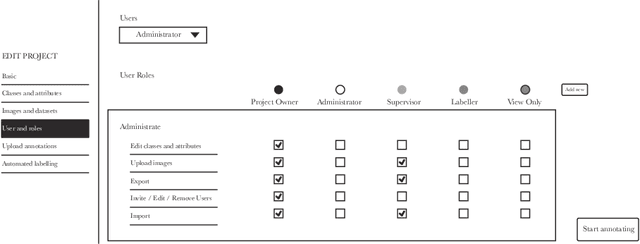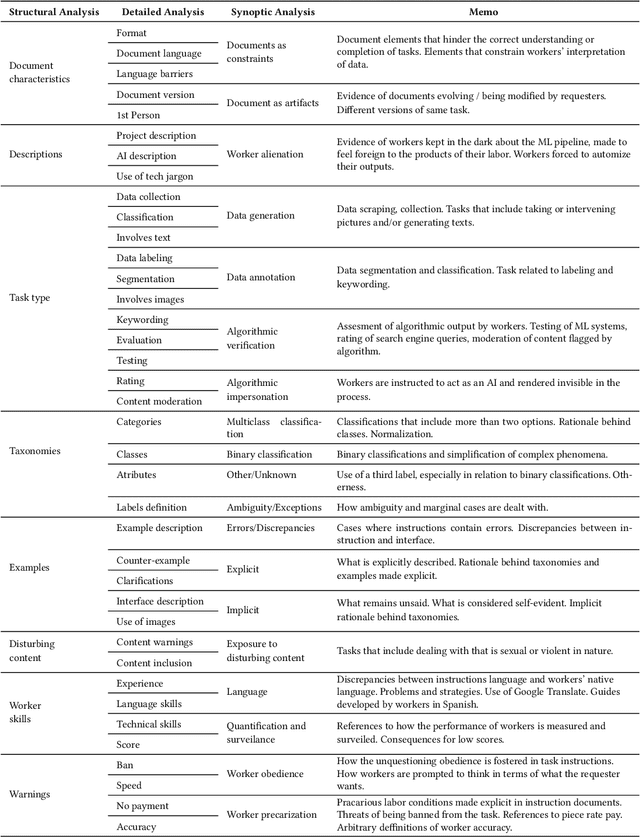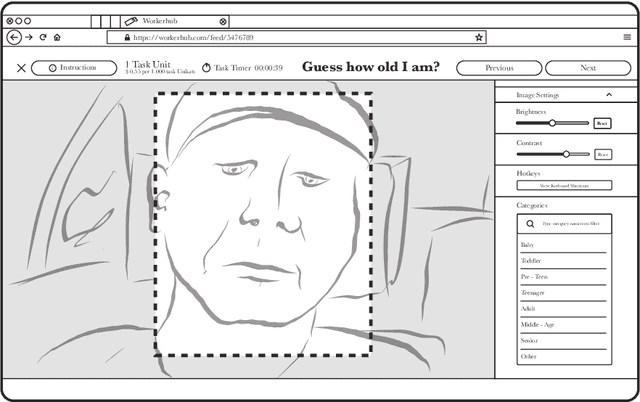Julian Posada
The Human Factor in AI Red Teaming: Perspectives from Social and Collaborative Computing
Jul 10, 2024Abstract:Rapid progress in general-purpose AI has sparked significant interest in "red teaming," a practice of adversarial testing originating in military and cybersecurity applications. AI red teaming raises many questions about the human factor, such as how red teamers are selected, biases and blindspots in how tests are conducted, and harmful content's psychological effects on red teamers. A growing body of HCI and CSCW literature examines related practices-including data labeling, content moderation, and algorithmic auditing. However, few, if any, have investigated red teaming itself. This workshop seeks to consider the conceptual and empirical challenges associated with this practice, often rendered opaque by non-disclosure agreements. Future studies may explore topics ranging from fairness to mental health and other areas of potential harm. We aim to facilitate a community of researchers and practitioners who can begin to meet these challenges with creativity, innovation, and thoughtful reflection.
The Data-Production Dispositif
May 24, 2022



Abstract:Machine learning (ML) depends on data to train and verify models. Very often, organizations outsource processes related to data work (i.e., generating and annotating data and evaluating outputs) through business process outsourcing (BPO) companies and crowdsourcing platforms. This paper investigates outsourced ML data work in Latin America by studying three platforms in Venezuela and a BPO in Argentina. We lean on the Foucauldian notion of dispositif to define the data-production dispositif as an ensemble of discourses, actions, and objects strategically disposed to (re)produce power/knowledge relations in data and labor. Our dispositif analysis comprises the examination of 210 data work instruction documents, 55 interviews with data workers, managers, and requesters, and participant observation. Our findings show that discourses encoded in instructions reproduce and normalize the worldviews of requesters. Precarious working conditions and economic dependency alienate workers, making them obedient to instructions. Furthermore, discourses and social contexts materialize in artifacts, such as interfaces and performance metrics, limiting workers' agency and normalizing specific ways of interpreting data. We conclude by stressing the importance of counteracting the data-production dispositif by fighting alienation and precarization, and empowering data workers to become assets in the quest for high-quality data.
Studying Up Machine Learning Data: Why Talk About Bias When We Mean Power?
Sep 16, 2021Abstract:Research in machine learning (ML) has primarily argued that models trained on incomplete or biased datasets can lead to discriminatory outputs. In this commentary, we propose moving the research focus beyond bias-oriented framings by adopting a power-aware perspective to "study up" ML datasets. This means accounting for historical inequities, labor conditions, and epistemological standpoints inscribed in data. We draw on HCI and CSCW work to support our argument, critically analyze previous research, and point at two co-existing lines of work within our community -- one bias-oriented, the other power-aware. This way, we highlight the need for dialogue and cooperation in three areas: data quality, data work, and data documentation. In the first area, we argue that reducing societal problems to "bias" misses the context-based nature of data. In the second one, we highlight the corporate forces and market imperatives involved in the labor of data workers that subsequently shape ML datasets. Finally, we propose expanding current transparency-oriented efforts in dataset documentation to reflect the social contexts of data design and production.
Wisdom for the Crowd: Discoursive Power in Annotation Instructions for Computer Vision
May 23, 2021
Abstract:Developers of computer vision algorithms outsource some of the labor involved in annotating training data through business process outsourcing companies and crowdsourcing platforms. Many data annotators are situated in the Global South and are considered independent contractors. This paper focuses on the experiences of Argentinian and Venezuelan annotation workers. Through qualitative methods, we explore the discourses encoded in the task instructions that these workers follow to annotate computer vision datasets. Our preliminary findings indicate that annotation instructions reflect worldviews imposed on workers and, through their labor, on datasets. Moreover, we observe that for-profit goals drive task instructions and that managers and algorithms make sure annotations are done according to requesters' commands. This configuration presents a form of commodified labor that perpetuates power asymmetries while reinforcing social inequalities and is compelled to reproduce them into datasets and, subsequently, in computer vision systems.
 Add to Chrome
Add to Chrome Add to Firefox
Add to Firefox Add to Edge
Add to Edge